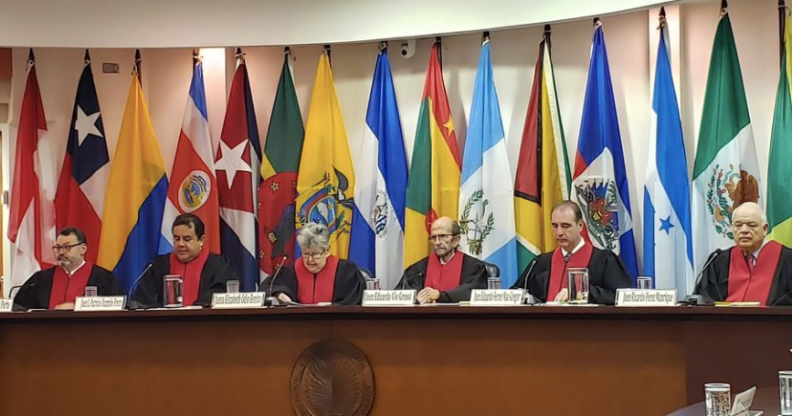Peru is ‘responsible’ for rape and torture of trans woman while in custody, top human rights court rules

Inter-American Court of Human Rights hears cases of human rights abuses in Latin America (Twitter/@CorteIDH)
The top human rights court in the Americas has found Peru responsible for the rape and torture of a trans woman while in police custody.
In 2008, Azul Rojas Marín was stripped, hit and raped with a truncheon by three police officers in northern Peru, her legal team said.
The Inter-American Court of Human Rights declared that she had been the victim of an act of torture, and that her detention was discriminatory, illegal and arbitrary.
As well as paying Marín unspecified damages and providing her with psychological treatment, the court also ordered the Peruvian government to adopt new protocols for investigating attacks against LGBT+ people and track statistics of violence against the community.
The landmark case represents the first time the court has ruled on a complaint of torture against the LGBT+ community.
“It is a very emblematic case. It’s historic because it classifies the violence received by this woman as torture,” Andre Mere Rivera, a local LGBT+ activist, told the Thomson Reuters Foundation.
“It makes the state responsible for the violence and discrimination that [the LGBT+ community] has historically suffered and continues to suffer.”
After she was released Marín filed a criminal complaint against police. When her case was dismissed by state prosecutors, human rights groups took it to the Inter-American Court on her behalf.
As the judicial arm of the Organisation of American States, the court hears cases of human rights abuses in Latin America and can order governments to investigate crimes and compensate victims.
A 2015 study by the Peruvian government found 90 percent of LGBT+ residents in and around the capital Lima had been victims of some type of violence, of which nearly 19 percent was at the hands of state security agents.
“(The ruling) should serve to remind authorities that violence and discrimination against LGBT people contravenes international human rights law,” said Cristian Gonzalez Cabrera, an LGBT+ rights researcher at Human Rights Watch.

